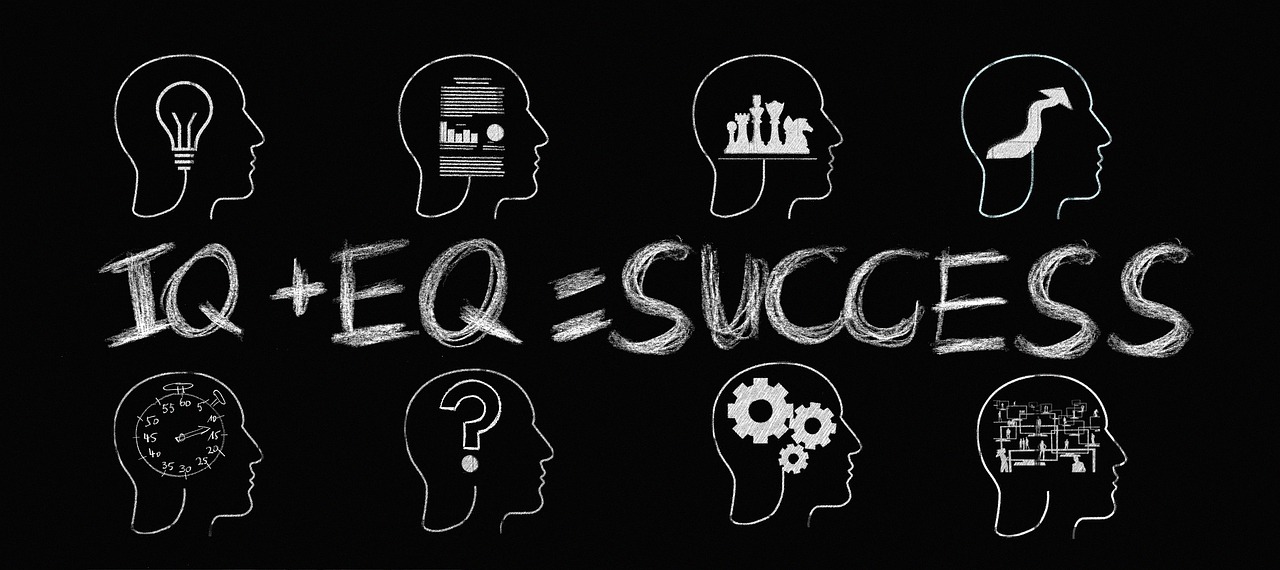Developing Emotional Intelligence In Toddlers: Nurturing Empathy And Self-Awareness
In the exciting journey of parenting, one of the essential skills we aim to instill in our little ones is emotional intelligence. This article explores the importance of nurturing empathy and self-awareness in toddlers, laying the foundation for their emotional development. By understanding the significance of emotional intelligence and exploring practical strategies, you can empower your child to navigate their emotions and build positive relationships with others. Join us on this enlightening exploration of developing emotional intelligence in toddlers.
Understanding Emotional Intelligence
Emotional intelligence refers to the ability to perceive, understand, and manage one’s own emotions, as well as being able to recognize and empathize with the emotions of others. It is a crucial skill that helps individuals navigate social interactions and build strong relationships. Emotional intelligence forms the foundation for healthy emotional development and is a key factor in overall well-being.
Defining emotional intelligence
Emotional intelligence can be broken down into several components: self-awareness, self-regulation, empathy, social skills, and motivation. Self-awareness involves recognizing and understanding one’s own emotions, strengths, and weaknesses. Self-regulation refers to the ability to manage and regulate one’s emotions, thoughts, and behaviors. Empathy is the capacity to understand and share the emotions of others. Social skills involve effective communication, cooperation, and conflict resolution. Motivation relates to setting and achieving goals, as well as maintaining a positive attitude.

Importance of emotional intelligence in toddlers
Building emotional intelligence in toddlers is crucial for their overall development and well-being. Toddlers who possess strong emotional intelligence are better able to manage their own emotions, navigate social situations, and build positive relationships. They have a greater sense of self-awareness, which enables them to recognize and express their own emotions effectively. Additionally, emotional intelligence helps toddlers understand and empathize with the emotions of others, promoting positive interactions and reducing conflict. Developing emotional intelligence in early childhood lays the foundation for resilience, empathy, and emotional regulation throughout life.
The Role of Empathy
Empathy plays a key role in emotional intelligence. It is the ability to understand and share the feelings of others. Teaching toddlers empathy fosters a caring and compassionate mindset, enabling them to form meaningful connections with others.
Building empathy skills in toddlers
To build empathy skills in toddlers, it is important to model empathetic behavior and teach them to consider the feelings of others. Encourage them to take turns, share toys, and engage in cooperative play with their peers. Provide opportunities for them to see and understand different perspectives, such as through storytelling or discussing characters in books. Help them identify and label emotions in themselves and others, fostering an understanding of how emotions can influence behavior.
Fostering a caring and compassionate mindset
To cultivate a caring and compassionate mindset in toddlers, create a nurturing environment that promotes kindness and empathy. Encourage them to engage in acts of kindness, such as helping others or comforting a friend who is upset. Teach them about the importance of respecting others’ boundaries and feelings. Reinforce positive behaviors and praise them for showing empathy or compassion. By highlighting the positive impact empathy has on relationships, toddlers will develop a strong sense of caring for others.

Promoting Self-Awareness
Self-awareness is a crucial aspect of emotional intelligence as it enables toddlers to understand and identify their own emotions. By promoting self-awareness, toddlers can develop a better understanding of their emotional states and learn strategies for self-regulation.
Helping toddlers recognize and express their emotions
Encourage toddlers to identify and label their emotions by using simple language to describe different emotional states. For example, ask them how they are feeling and provide a range of emotion words to choose from. Use books, pictures, or visual aids to help them identify and express their emotions. Create an open and non-judgmental environment where they feel comfortable discussing their feelings and experiences. Validate their emotions and let them know that it is okay to feel a wide range of emotions.
Encouraging self-reflection and self-regulation
Teach toddlers strategies to manage their emotions effectively. Help them understand that feelings are natural and provide guidance on healthy ways to express and regulate their emotions. Encourage them to take deep breaths, engage in physical activities, or use positive self-talk when they feel overwhelmed. Promote self-reflection by asking open-ended questions about their experiences and emotions. By encouraging toddlers to reflect on their emotions and develop self-regulation skills, they will be better equipped to manage challenging situations and navigate their emotional landscape.
Building Positive Relationships
Developing positive relationships is central to emotional intelligence. Teaching toddlers effective communication, cooperation, and conflict resolution skills lays the foundation for healthy social interactions.
Teaching toddlers to communicate effectively
Help toddlers develop strong communication skills by providing opportunities for them to express their thoughts and feelings. Encourage active listening by modeling attentive behavior and reflecting back their words or feelings. Use age-appropriate language and encourage them to use words to express their needs instead of resorting to tantrums or aggressive behavior. Teach them about the importance of listening to others and taking turns in conversations.
Encouraging cooperation and conflict resolution
Teach toddlers how to cooperate with others through playing games or engaging in group activities. Encourage sharing, taking turns, and demonstrating empathy towards their peers. Teach them simple conflict resolution strategies, such as using “I” statements and finding mutually agreeable solutions. Provide guidance on identifying emotions in conflict situations and help them navigate challenging interactions by suggesting alternative perspectives. By fostering cooperation and conflict resolution skills, toddlers will develop strong, positive relationships with their peers and learn the value of empathy and compromise.

The Power of Play
Play is a powerful tool for developing emotional intelligence in toddlers. Through play, children can explore, experiment, and learn about their emotions and the emotions of others in a safe and enjoyable way.
Using play to develop emotional intelligence
Incorporate different types of play that encourage emotional exploration. Provide a variety of toys, including dolls or stuffed animals, to allow for imaginative play that involves expressing emotions and acting out different scenarios. Use puppets or role play to help toddlers explore and understand different emotional states. Play board games that require turn-taking, cooperation, and following rules to develop social and emotional skills. By incorporating play into their daily routine, toddlers can practice and develop their emotional intelligence.
Incorporating emotional themes into games and activities
Integrate emotional themes into games and activities to help toddlers understand and express their emotions. Use storytelling to introduce characters and situations that elicit various emotions, allowing toddlers to empathize and relate to the characters’ experiences. Create emotion-based art activities, such as drawing or painting different facial expressions, to enhance emotional understanding. Engage in sensory play that involves different textures or materials to stimulate emotional experiences. By incorporating emotional themes into games and activities, toddlers can develop a deeper awareness and understanding of their own emotions and the emotions of others.
Modeling Desired Behaviors
As toddlers are highly observant, modeling desired behaviors is essential in promoting their emotional intelligence. They learn by watching and imitating the actions and attitudes of those around them.
Being an empathetic and self-aware role model
Model empathy and self-awareness by demonstrating kindness, understanding, and respect towards others. Show empathy by validating their emotions and being attentive to their needs. When you encounter a challenging situation, model healthy emotional expression by calmly discussing your feelings and demonstrating effective problem-solving strategies. Let them observe your self-regulation techniques and how you handle stress or frustration. By consistently modeling desired behaviors, toddlers will absorb and internalize these qualities, enhancing their own emotional intelligence.
Demonstrating healthy emotional expression
It is important to demonstrate healthy emotional expression by validating and accepting their emotions. Encourage them to openly express their feelings and provide a safe and non-judgmental space for them to do so. Show them that it is okay to experience a wide range of emotions and teach them positive ways to manage and express their feelings. Model calmness, patience, and understanding when they display intense emotions, helping them regulate their own emotional responses. By demonstrating healthy emotional expression, toddlers will learn valuable emotional management skills and feel empowered to express themselves in a healthy and constructive manner.
Managing Emotions
Helping toddlers cope with strong emotions is an essential aspect of developing their emotional intelligence. By teaching them effective strategies for emotional regulation, toddlers can learn to manage their emotions in a healthy and constructive way.
Helping toddlers cope with strong emotions
When toddlers experience intense emotions, offer comfort and support. Provide a safe and soothing environment by creating a calm space or engaging in activities that promote relaxation, such as deep breathing or listening to calming music. Offer physical comfort through gentle hugs or cuddling. Let them know that it is natural to feel strong emotions, and validate their experience. Teach them that emotions come and go, and there are healthy ways to cope with them.
Teaching emotional regulation strategies
Teach toddlers simple strategies to regulate their emotions, such as taking deep breaths, counting to ten, or engaging in physical activities like jumping or dancing. Encourage them to find activities they enjoy that help them calm down, such as reading a book or playing with sensory toys. Help them develop a toolkit of strategies they can use when facing challenging emotions. By teaching emotional regulation strategies, toddlers can learn to navigate intense emotions and develop resilience.
Creating a Nurturing Environment
Providing a safe and supportive environment is crucial for nurturing emotional intelligence in toddlers. By creating a nurturing environment, toddlers feel secure and are more open to exploring and expressing their emotions.
Providing a safe and supportive space
Create a physically and emotionally safe space where toddlers can freely express their emotions without fear of judgment or punishment. Ensure that the environment is free from hazards and offers opportunities for exploration and play. Provide comfort items such as stuffed animals or blankets to offer a sense of security. Establish consistent routines and predictable schedules to help toddlers feel secure and develop a sense of stability.
Offering unconditional love and acceptance
Foster a nurturing environment by offering unconditional love and acceptance. Show toddlers that they are valued for who they are, regardless of their emotional expressions or behaviors. Offer praise and positive reinforcement for their efforts in developing emotional intelligence. Provide emotional support by actively listening, offering comfort, and responding sensitively to their needs. By offering unconditional love and acceptance, toddlers will feel safe to explore and express their emotions, fostering the development of emotional intelligence.
Encouraging Emotional Vocabulary
Teaching toddlers to identify and label emotions is a fundamental step in developing their emotional intelligence. By expanding their emotional vocabulary, toddlers can better articulate their feelings and understand the emotions of others.
Teaching toddlers to identify and label emotions
Introduce toddlers to a range of emotions by using simple language to describe different emotional states. Use books, pictures, or visual aids that depict various emotions to help them recognize and connect emotions to facial expressions. Play emotion-based games, such as “guess the emotion,” where they have to identify and label different emotional states. Encourage them to express their emotions verbally by asking questions like “How are you feeling today?” or “What made you happy/sad?” By teaching toddlers to identify and label emotions, they will develop a more nuanced understanding of their own and others’ emotional experiences.
Expanding their emotional vocabulary
Build upon their emotional vocabulary by introducing more nuanced emotions and elaborating on the intensity levels of each emotion. Help them describe the subtle differences between similar emotions, such as the varying degrees of happiness (e.g., content, excited, ecstatic). Engage in discussions about emotions and encourage toddlers to share examples from their own experiences. Use storytelling or role play to explore complex emotional situations and discuss the emotions involved. By expanding their emotional vocabulary, toddlers will become more adept at articulating their feelings and understanding the emotions of others.
Recognizing Individual Differences
It is important to recognize that each toddler develops at their own pace in terms of emotional intelligence. Tailoring strategies to their unique needs and temperament ensures a supportive and effective approach.
Understanding that each toddler develops at their own pace
Recognize that emotional intelligence develops differently in each toddler based on various factors such as temperament, experiences, and individual growth rates. Some toddlers may naturally be more emotionally expressive, while others may take longer to develop certain emotional skills. Avoid comparing toddlers to others and instead focus on their individual progress. Offer encouragement and support as they navigate their unique emotional journey.
Tailoring strategies to their unique needs
Observe and understand each toddler’s unique needs and temperament. Adapt interventions and strategies to suit their individual preferences and learning styles. Some toddlers may respond best to visual aids and hands-on activities, while others may benefit from quieter, reflective moments. Be flexible and open to trying different approaches based on their individual strengths and challenges. By tailoring strategies to their unique needs, toddlers will feel supported and empowered in their emotional development.
In conclusion, developing emotional intelligence in toddlers is a vital aspect of their overall well-being and social development. By nurturing empathy, self-awareness, positive relationships, play, modeling desired behaviors, managing emotions, creating a nurturing environment, encouraging emotional vocabulary, and recognizing individual differences, we can help toddlers build a strong foundation of emotional intelligence. Through these efforts, toddlers can become emotionally resilient, empathetic, and capable of navigating the complexities of their emotions and relationships throughout their lives.




